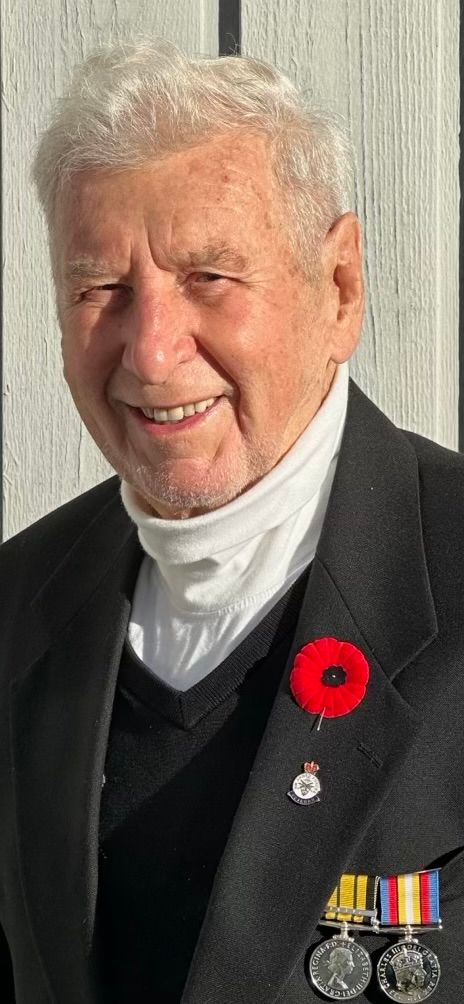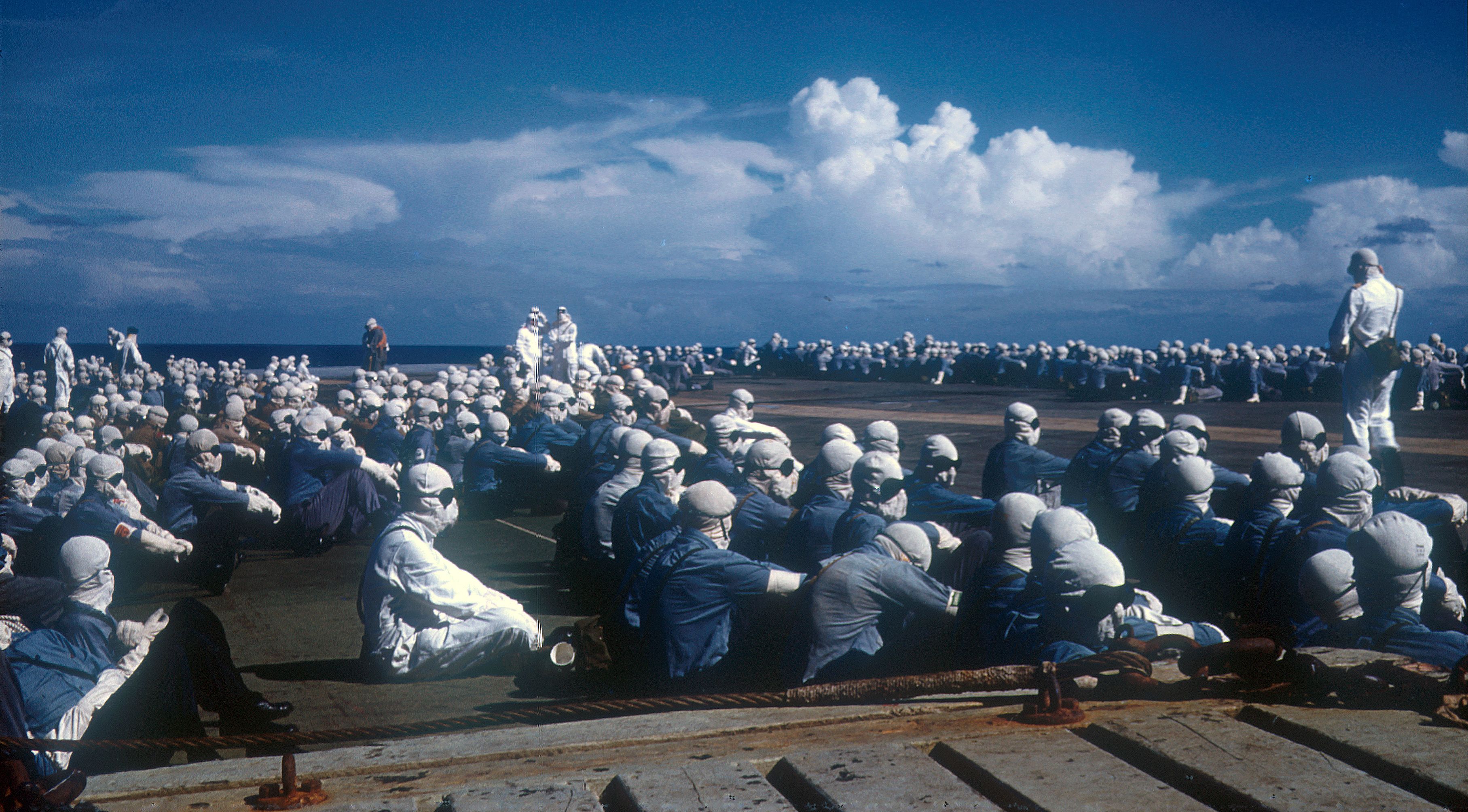
Eric Waterfield was born in Yorkshire in 1931. In 1949 he joined the Royal Engineers as a regular serviceman. Three years later he was posted to the Monte Bello Islands in Australia to take part in Operation Hurricane, Britain’s first nuclear test. Here, he was part of a team of Royal Engineers who laid a water pipeline to pipe fresh water from the Australian mainland to one of the islands. He witnessed the detonation of Blue Danube from HMS Zeebrugge. After his time in Australia, Waterfield was posted to Kenya during the Mau Mau rebellion. He later worked at a steelworks before moving to Canada with his wife in the 1960s. Together they had three daughters, who Waterfield raised as a single father following his wife’s death in 1974. He currently lives in British Columbia, Canada, with his second wife, Bente.
Interview extracts
Description
Eric Waterfield describes returning from service as a Royal Engineer in Operation Hurricane, which led to Britain’s first atomic test in the Monte Bello Islands in Western Australia. By Christmas 1955, he was suffering from major lung problems. In this clip he discusses his family’s health problems with the interviewer. His wife Barbara gave birth to a stillborn baby, which Waterfield believed could have been a result of his test participation. In his full interview he refers to other health problems experienced by his family members, which he believes were connected to the intergenerational health effects of radiation exposure. Upon returning home, Waterfield and several other troops from Operation Hurricane were recruited onto the streets of London to support the coronation of Queen Elizabeth II in June 1953.
This is a short extract from an in-depth interview. Eric Waterfield was recorded for the Oral History of British Nuclear Test Veterans project in 2024. The interviewer was Fiona Bowler. This project was run in partnership with National Life Stories and the full interview can be accessed at the British Library.
Transcript
You mentioned you had your lung problem, was that when you first started to think about potentially the effects of what you’d gone through?
Yeah, oh I did, yeah.
When was that, when did you have your lung…
1955.
Okay, so very soon after you came back?
Yeah. Christmas, pretty close to Christmas 1955, because there was snow on the ground, I remember, yeah.
And you said about your wife had a stillbirth. At the time, did you think that that could be connected?
I didn’t think so at the time, I didn’t think about it at the time, no. But I mean, it probably was, you know…
[ends at 00:00:45]


